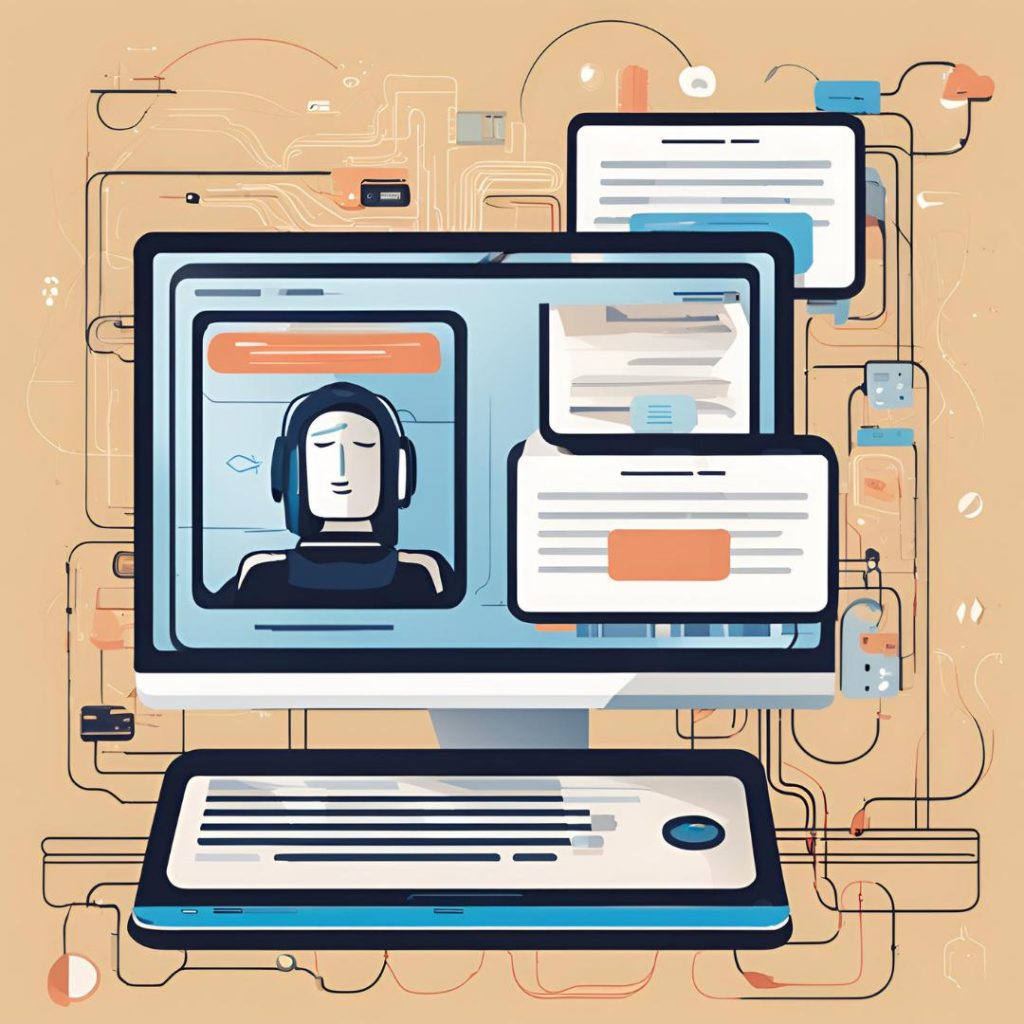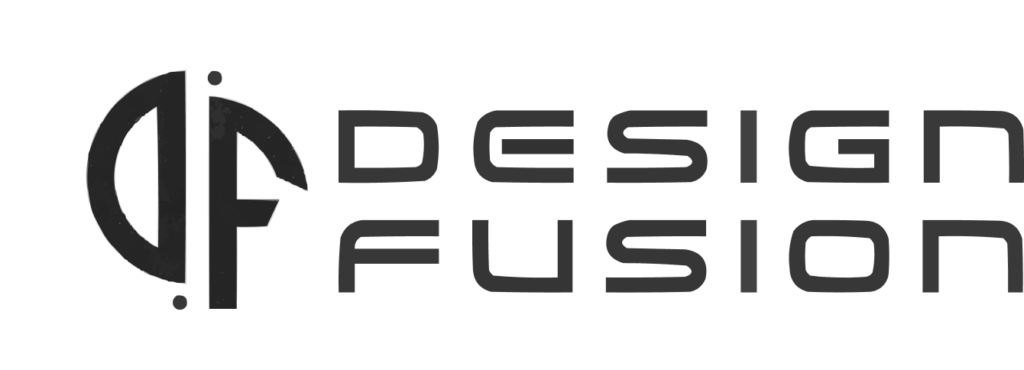Artificial Intelligence (AI) has rapidly become a transformative force in different sectors in the world, and web development is no exception in all sectors. Integrating AI into web development processes can enhance user experiences, streamline development tasks, and create more dynamic, personalised experienced websites.
In this article, thedesignfusion is going to list top 12 uses of AI in web development. So, without wasting time let’s get started with our list.
1. Personalized User Experience

AI can help create personalised user experiences by analysing user behaviour and preferences. This means websites can recommend products, articles, or services personalised to individual users, which can enhance user engagement and satisfaction.
Here are some uses of AI in Web development:
User Behavior Analysis: AI algorithms analyse user behaviour on websites, such as pages visited, time spent on each page, and interactions. This data helps in personalising content that aligns with user preferences.
Content Recommendation: AI-powered recommendation systems suggest products, articles, or services based on a user’s past behaviour and preferences. For example, Netflix uses AI to recommend shows and movies to its users.
Personalized Marketing: AI can personalize marketing messages and advertisements. By analysing user data, AI can deliver personalised ads that are more likely to resonate with individual users, increasing the chances of conversion.
Now, let’s see the next uses of AI in web development.
2. Chatbots and Virtual Assistants
AI-powered chatbots and virtual assistants can provide instant customer support, answer questions, and help guide users through a website. This can reduce the workload for human support teams and ensure that users get the help they need quickly and nowadays, tech companies even small size companies also use Chatbots and virtual assistants.
AI-powered chatbots and virtual assistants are becoming increasingly common on websites. They provide several benefits which are as follows:
- 24/7 Customer Support: Chatbots can provide instant responses to customer queries, offering support at any time of day or night.
- Improved User Engagement: Virtual assistants can guide users through the website, helping them find information, products, or services more efficiently.
- Data Collection: Chatbots can collect valuable data about user preferences and behaviours, which can be used to improve services and personalise user experiences further.
3. Improved Search Functionality
AI-powered chatbots and virtual assistants can provide instant customer support, answer questions, and help guide users through a website. This can reduce the workload for human support teams and ensure that users get the help they need quickly and nowadays, tech companies even small size companies also use Chatbots and virtual assistants.
AI-powered chatbots and virtual assistants are becoming increasingly common on websites. They provide several benefits which are as follows:
- 24/7 Customer Support: Chatbots can provide instant responses to customer queries, offering support at any time of day or night.
- Improved User Engagement: Virtual assistants can guide users through the website, helping them find information, products, or services more efficiently.
- Data Collection: Chatbots can collect valuable data about user preferences and behaviours, which can be used to improve services and personalise user experiences further.
Ways to Use AI in Web Development
Artificial Intelligence (AI) has rapidly become a transformative force across various industries, and web development is no exception. Integrating AI into web development processes can enhance user experiences, streamline development tasks, and create more dynamic, personalized websites. Here, we explore the various ways AI can be utilized in web development.
1. Personalized User Experience
AI can significantly enhance the user experience by providing personalized content and recommendations. Here’s how:
- User Behavior Analysis: AI algorithms analyze user behavior on websites, such as pages visited, time spent on each page, and interactions. This data helps in tailoring content that aligns with user preferences.
- Content Recommendation: AI-powered recommendation systems suggest products, articles, or services based on a user’s past behavior and preferences. For instance, Netflix uses AI to recommend shows and movies to its users.
- Personalized Marketing: AI can personalize marketing messages and advertisements. By analyzing user data, AI can deliver personalized ads that are more likely to resonate with individual users, increasing the chances of conversion.
2. Chatbots and Virtual Assistants

AI-powered chatbots and virtual assistants are becoming increasingly common on websites. They provide several benefits:
- 24/7 Customer Support: Chatbots can provide instant responses to customer queries, offering support at any time of day or night.
- Improved User Engagement: Virtual assistants can guide users through the website, helping them find information, products, or services more efficiently.
- Data Collection: Chatbots can collect valuable data about user preferences and behaviors, which can be used to improve services and personalize user experiences further.
3. Enhanced Search Functionality
AI can improve the search functionality of websites, making it easier for users to find what they’re looking for, in other ords e can say, it’s heps user to navigate through easily.
Here’s how AI enhances search:
- Natural Language Processing (NLP): AI uses NLP to understand and process user queries in natural language, providing more accurate search results.
- Voice Search: AI enables voice search functionality, allowing users to search for information using voice commands.
- Predictive Search: AI can predict what users are searching for based on their typing patterns, previous searches, and common queries, offering suggestions and auto-completions.
4. Content Creation and Optimization
AI tools can help generate content ideas, write articles, and optimize existing content for search engines. This can help keep a website’s content fresh and relevant, which is important for both user engagement and search engine optimisation (SEO).
Here are some use case of ai in content creation and optmiszation
- Content Generation: AI tools like GPT-3 can generate high-quality content, including articles, blog posts, and product descriptions.
- Content Curation: AI can curate content by aggregating relevant information from various sources and presenting it in a coherent manner.
- Content Scheduling: AI can automate content scheduling, ensuring that new content is published at optimal times for maximum engagement.
5. Enhanced Security

AI can enhance website security by detecting and preventing threats in real-time. It can analyze patterns to identify potential security issues, such as malware or phishing attacks, and take steps to protect the website and its users.
AI can provide deeper insights into website performance and user behaviour through advanced analytics and here are use cases of Ai in web development:
- Predictive Analytics: AI can predict future trends and user behaviours based on historical data, helping businesses make informed decisions.
- User Segmentation: AI can segment users based on various criteria, allowing for more targeted marketing and personalized user experiences.
A/B Testing: AI can automate A/B testing, comparing different versions of a webpage or app to determine which one performs better.
6. Automated Testing and Debugging
AI-driven tools can automatically test and debug websites, identifying issues faster than manual testing. This can help ensure that websites run smoothly and reduce the time and effort needed for quality assurance.
AI can automate various aspects of web design and development, reducing the workload for developers and designers and here are some ays of uses of ai in automation and debugging
- AI Design Tools: Tools like Wix and Bookmark use AI to automatically create website designs based on user input and preferences.
- Code Generation: AI can assist in generating code, helping developers create websites more quickly and efficiently. For instance, GitHub Copilot suggests code snippets and functions based on the context.
- Bug Detection and Fixing: AI can identify and fix bugs in the code automatically, improving the overall quality and stability of the website.
7. Responsive Design
AI can analyze user data to create responsive designs that adapt to different devices and screen sizes. This ensures that users have a consistent and user-friendly experience, whether they’re visiting a website on a phone, tablet, or computer.
8. Voice Recognition and Processing
By integrating AI voice recognition, users can interact with websites using voice commands. This can make websites more accessible and provide a hands-free browsing experience, which is especially useful for users with disabilities.
9. Dynamic Pricing
For e-commerce websites, AI can be used to implement dynamic pricing strategies that adjust prices in real-time based on various factors. And e have seen this kind of feature on numerous website such as amazon, Flipkart, ikea etc
- Demand Forecasting: AI can predict future demand for products based on historical data, seasonal trends, and external factors. This helps in setting optimal prices.
- Competitive Analysis: AI can monitor competitor prices and adjust prices accordingly to stay competitive.
- Personalized Pricing: AI can offer personalised pricing to different users based on their behavior, purchase history, and preferences, increasing the likelihood of conversions.
10. Image and Video Recognition

AI can analyze images and videos to provide relevant content, improve search results, and enhance user interactions. For example, it can identify objects, faces, or even emotions in multimedia content, making it easier to organize and search.
11. Customer Journey Mapping
AI can map out the customer journey on a website, providing valuable insights into user behavior and preferences:
- Journey Analytics: AI can analyze the different paths users take on a website, from landing pages to conversions. This helps identify the most effective paths and bottlenecks in the user journey.
- Predictive Journey Mapping: AI can predict future user journeys based on past behavior, allowing businesses to optimize their websites to guide users towards desired actions.
- Personalized Journeys: AI can create personalized user journeys by dynamically adjusting the website content and layout based on user behavior and preferences.
12. Improved Content Delivery Networks (CDNs)
AI can optimize content delivery networks to ensure faster and more efficient content delivery to users. Website likes Unsplash or giant ecom websites like amazon. They also uses CDNs to load content faster on the website.
Here are the use cases AI in CDNs
- Traffic Management: AI can manage traffic more effectively by dynamically routing users to the nearest server, reducing latency and improving load times.
- Load Balancing: AI can balance the load across multiple servers, ensuring that no single server is overwhelmed and maintaining optimal performance.
- Content Caching: AI can intelligently cache frequently accessed content, reducing the load on servers and speeding up content delivery.
Conclusion
AI is revolutionizing web development by offering a wide range of tools and technologies that enhance user experiences, streamline development processes and improve website performance. From personalized user experiences and advanced analytics to automated design and security enhancements, AI is transforming the way websites are developed and managed.
Whether you’re a developer looking to streamline your workflow, a business aiming to enhance user engagement, or a user seeking more personalized online experiences, AI in web development offers a range of possibilities that shape the web development section.


